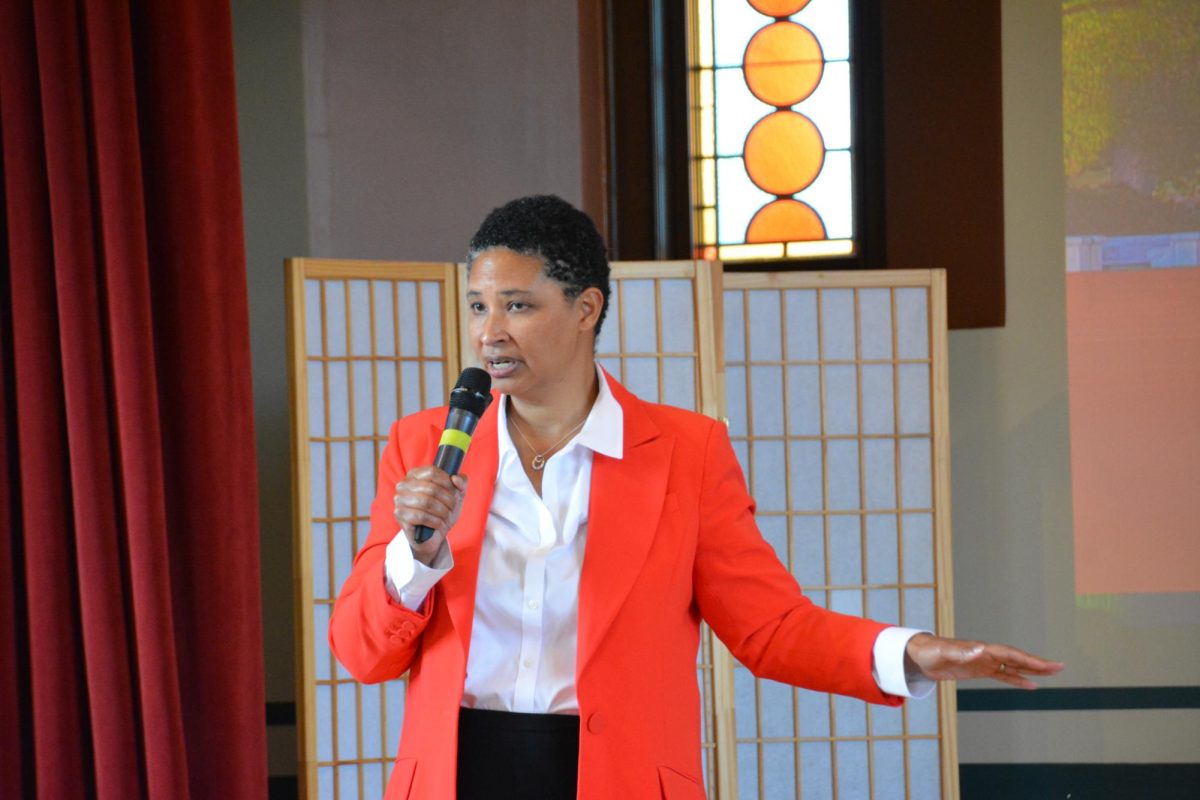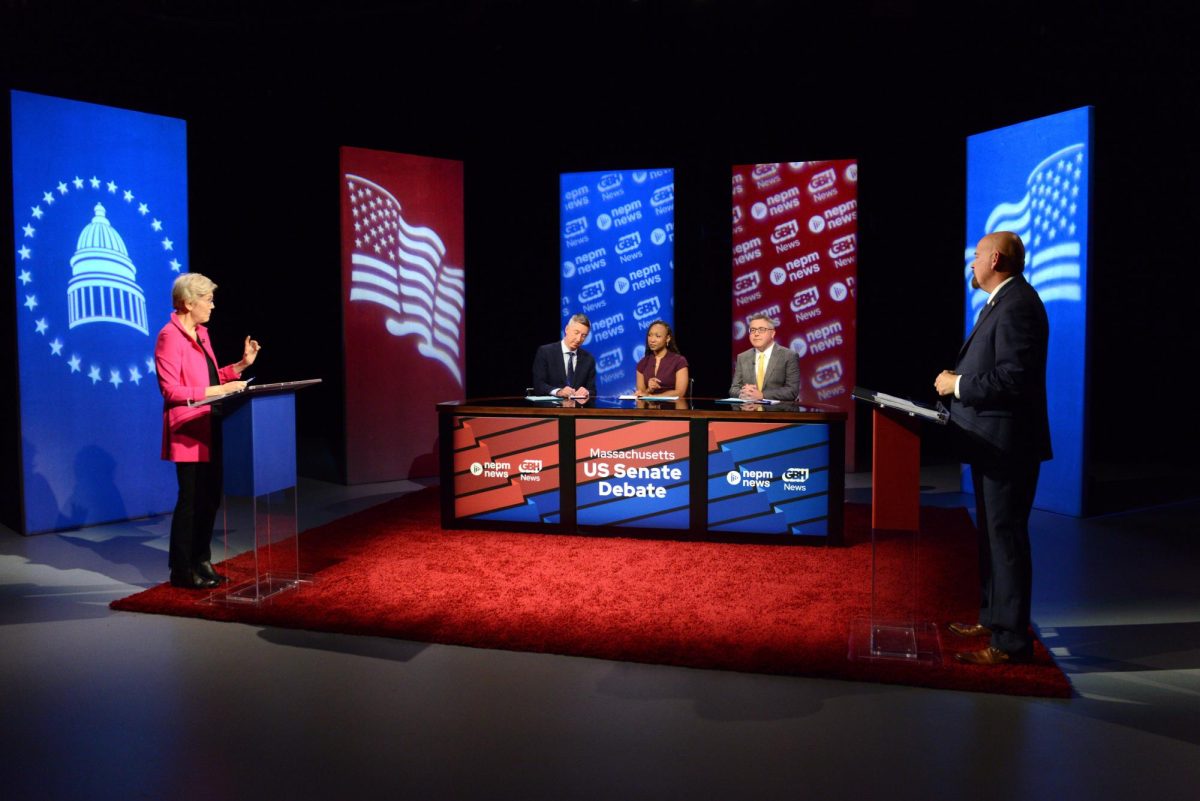The people of Massachusetts decided Tuesday that Deval Patrick deserved a second term as their governor, sending the one-term incumbent back to Beacon Hill with about 48 percent of the vote.
Patrick survived an intense challenge from Republican Charlie Baker, a former businessman and William Weld administration staffer. The Governor also benefited from Independent Tim Cahill, who drew just under 10 percent of the vote, with many of those ballots likely going to Baker were Cahill not in the race.
After the polls closed at 8 p.m. yesterday, initial indications were that the race would be a close one, as Baker trailed Patrick by just two to three percent, according to live counts reported by news organizations like the Boston Globe. However, as more and more precincts reported their results, it became clear that Patrick was on his way to a second term.
As Patrick’s reelection became more and more certain, it appeared his message of “generational responsibility,” or an obligation on his and all generations’ behalf to leave the world better off, resonated with Commonwealth voters. Throughout the campaign, Baker took a conventional approach of attempting to cast Patrick as a Beacon Hill insider, framing himself as an alternative to politics as usual.
As his campaign spokesman Rick Gorka said Sunday, “If you’re happy with the way Massachusetts is being run and happy with the direction of the state, then vote for Gov. Patrick; if you think that Massachusetts can be owing better, then you have to vote for Charlie Baker.”
Gorka’s message initially looked like it may have held weight with Massachusetts voters, as recent polls conducted by several organizations indicated that a majority of Bay State residents believed the Commonwealth was headed in the wrong direction.
According to an Oct. 24 Boston Globe poll, 55 percent of likely voters believed the state was headed the wrong way, compared to just 39 percent who said it was headed in the right direction.
In the end, it may not have been about whether voters believed the state was going the right way, and more about simply who voters liked better.
Throughout the campaign, Patrick scored significantly higher than Baker or any of his other opponents in likability ratings.
“Our polling has consistently shown [Patrick] to be the person with the best temperament, and he’s had job satisfaction numbers running in the mid-40s,” said David Paleologos, director of the Suffolk University Political Research Center last week.
As the results continued to pour in, Patrick’s margin remained relatively stable. With about half of the vote in, Patrick held 48 percent of the vote to Baker’s 42, Cahill’s eight percent and Green-Rainbow candidate Jill Stein’s one percent. These numbers were more or less the median of what recent polls had indicated, as an Oct. 29 Rasmussen Reports poll put Patrick ahead just 46-to-44, while a Suffolk/7 News Boston poll gave Patrick 46 percent to Baker’s 39, and the latest Globe poll gave Patrick a 43-to-39 edge.
As it turned out, the Governor bested all of those prognostications, and fears of an 11th hour shift of support away from Cahill to Baker never materialized.
Leading up to the election, pundits and pollsters had speculated that it was possible voters who had supported Cahill would shift their support at the last minute to Baker.
As Paleologos put it, “The question is, what is Cahill going to end up with and what is Stein going to end up with.”
Widespread conjecture about a lack of voter enthusiasm also appeared to be proved moot, as the Globe reported that Massachusetts Secretary of State William Galvin, who also won reelection Tuesday, predicted near-record turnout levels.
By late afternoon yesterday, the Globe reported that several urban areas around the state were already reporting turnout of between 40 and 50 percent of potential voters, levels normally seen at the time polls close.
As for what ultimately tipped the vote in the incumbent’s favor, Paleologos and Whitehead said Patrick had likely succeeded in convincing voters that he had protected them from the worst of the economic woes which have affected most of the country and that Baker had done a less than stellar job of endearing himself to the people of Massachusetts.
“Patrick has run a good campaign,” said Whitehead, “six months ago, neutral observers would have said that Patrick’s maximum share of the vote is less than 50 percent; since then, he has done a good job of remaining close to his maximum.
“A lot of voters conclude that he helped spare enough of them from a full dose of the ravages of the Great Recession, and also because a lot of them didn’t take a shine to Baker as a person.”
While all the candidates in the race made jobs and the economy their primary focus, it seems Patrick’s emphasis on his administration’s record of job creation this year paid dividends. The Governor’s campaign has touted the fact that the Bay State has created some 50,000 jobs since the start of this year, positioning the Commonwealth near the front of states nationally in job creation.
“Massachusetts has created 40,500 private sector jobs since the start of the year, according to the Bureau of Labor Statistics, and that’s hopeful news,” said Patrick spokesman Alex Goldstein, reached by phone at Patrick headquarters in Boston on Friday. Locally, Pioneer Valley voters overwhelmingly supported the Governor. In Amherst, Patrick took a whopping 80 percent to Baker’s 11. In neighboring Northampton, Patrick swept up over 70 percent of the vote, with Baker garnering just 17. In more rural Hadley, Patrick grabbed 60 percent of the vote, with Baker wining just 28. Further south in the western corner of the state, Patrick held strong, though a few predominantly working class districts chose Baker, such as suburban Wilbraham, which chose Baker 52-to-37, and West Springfield, which gave 45 percent of its support to Baker and 40 to Patrick.
Across the state, Patrick drew a significant amount of his support from the inner-Boston area and less populated Western part of the state. The Governor trounced Baker in the capital by a margin of over two-to-one, and took Boston’s surrounding areas strongly as well, winning Cambridge, Brookline, Watertown, Newton, Quincy, and his place of residence, Milton.
Baker drew much of his support from Boston’s north and south suburban areas, and from parts of the center of the state as well. Baker won much of Plymouth County, including suburban Hingham, Cohasset, Marshfield and Duxbury, as well as large tracts of Cape Cod, like Sandwich, Barnstable,
Baker also took large swaths of the southeastern corridor of the state along the Rhode Island border, drawing a red line across such communities as Attleborough, Wrentham, Norfolk, Wrentham, Millis, Medway, Holliston and Foxborough.
Patrick won most of the Commonwealth’s urban areas, taking Lowell 49 to Baker’s 42 percent, winning Worcester by a margin of two-to-one, and easily claiming Springfield, with 63 percent, compared to just 25 for Baker.
By 10:30 p.m., just two hours and 30 minutes after polls closed across the state, the Boston Globe had called the election for Patrick, and Democrats would have at least four more years leading Massachusetts.
Sam Butterfield can be reached at [email protected].












